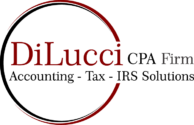While Delaware cannot be considered an “offshore tax haven,” the state is still considered a tax haven for many. And as the state provides tax incentives for different legal entities, it is still not quite a haven for all of them.
As a result, business owners who do not properly research the tax benefits in Delaware find out once it’s too late that they don’t qualify for the tax benefits due to their entity type, industry, and location of business activity. In these instances, business owners are left in a situation where they are out more money by paying fees and income taxes to Delaware in addition to the same amount of taxes they would already be paying without the Delaware entity formation.
Therefore, it is crucial for business owners to understand and evaluate the tax advantages and disadvantages of Delaware entity formation before setting up their business entity. In this article, we will discuss the top 10 tips for Delaware entity formation, which will cover the different Delaware taxes and when they provide an advantage or disadvantage to the business owner.

State Income Taxation
1. Delaware’s corporate income tax rate is higher than average.
Delaware’s corporate income tax rate is 8.7%, making it one of the top 10 states with the highest corporate tax rate. This state income tax is of course in addition to the federal income tax rate, which is not impacted by the state where a business is incorporated.
There are only six states that do not impose a corporate income tax, and Delaware is not one of them:
- Nevada
- Ohio
- South Dakota
- Texas
- Washington
- Wyoming
The income that is taxed by Delaware is not determined just by which state you have incorporated your business. Instead, it is based on what taxable income is allocated and apportioned to Delaware based on state law. Delaware apportions income based on what property, payroll, and sales your business has in Delaware.
Therefore, if all you have in Delaware is the legal incorporation with no office, staff, or customers in Delaware, then you shouldn’t have any taxable income apportioned in Delaware, and your business likely will not even have an income tax filing requirement in the state.
Delaware Income Tax Reporting for C-Corporations:
2. Delaware has a progressive individual income tax rate for LLCs.
Formation of Limited Liability Companies that do not elect C-Corporation tax status result in taxation at the individual level, both for federal and state, rather than subject to corporate income tax. This includes LLCs taxed as partnerships, S-Corporations, and as 100% passthrough entities on Schedule C of your federal tax return. Delaware recognizes the federal S-Corporation election and does not impose corporate taxes on passthrough income from S-Corps.
Delaware’s individual income tax rate is progressive, ranging from 2.2% to 5.55% for taxpayers with income under $60,000. Then, income over the $60,000 threshold is taxed by Delaware at a rate of 6.6%. These rates will apply to the taxable income of LLC entities that have not chosen to be taxed as a C-Corporation.
There are only seven states that do not impose an individual income tax, and Delaware is not one of them:
- Alaska
- Florida
- Nevada
- South Dakota
- Texas
- Washington
- Wyoming
Just as with corporate tax, the taxable income from LLCs that are S-Corporations, Partnerships, or 100% passthrough on Schedule C will be apportioned to Delaware based on the location of property, payroll, and sales within Delaware.
Delaware Income Tax Reporting for LLCs not taxed as a C-Corporation:
- S-Corporation: Form 1100S
- Partnerships: Form 300
- Resident Individuals: Form 200-01
- Nonresident Individuals: Form 200-02
3. The Delaware Tax Loophole provides an advantage to Delaware Holding Companies
If Delaware has both a corporate and individual income tax, then why is Delaware known as a tax haven?
The primary reason Delaware is advantageous for taxes is because Delaware does not tax royalty income for Delaware Holding Companies. Delaware Holding Companies are formed under Section 1902(b)(8) of Delaware law, and this code section exempts income from corporations whose activities are limited to maintenance and management of intangible assets.
Royalties are payments for the value of intangible assets like intellectual property or branding. This type of tax benefit is often not helpful for small businesses since they usually do not have significant value in intangible assets.
For businesses to capture this tax benefit, they incorporate a Delaware entity that will own the intangible asset and then have an entity in a high-tax state jurisdiction to make royalty payments to the Delaware entity in return for use of the intangible asset. The best tax result is when the high-tax state allows a deduction for the royalty payment, and then since Delaware does not tax the royalty income, the business does not pay any state tax on the royalty income. The tax savings and royalty payments permitted are based on the value of the intangibles, so the more valuable the intangible, the greater the tax benefit. This is why it is so common to see Delaware incorporation for publicly traded companies that have significant value in their intangible assets, such as copyrights, patents, trademarks, and trade secrets.
Franchise, LLC, Sales, and Other Tax
Since there are not necessarily significant state income tax benefits without substantial intangible assets, are there other taxes your business may benefit from in Delaware?
4. Delaware has no corporate tax on interest or other investment income.
A Delaware holding company Delaware does not tax public corporations on interest or other investment income, which is passive income, that is earned by a Delaware Holding Company. Since Delaware holding companies are limited in activity to maintenance and management of intangible investments, this tax exemption is within the same code section that exempts royalty payments from state tax.
5. Delaware has no personal property tax.
While many states impose a business personal property tax, Delaware does not. This means that business assets like furniture or inventory are not taxed annually.
6. Delaware has no sales or use tax.
Delaware does not impose a sales tax on goods or services sold in the state. However, even if your business is formed in Delaware when sales are to customers outside of Delaware, the state in which your customer resides will usually impose a sales tax.
The sales tax rules have substantially increased in complexity, particularly for remote sales out of state, since the 2018 Wayfair court case. Therefore, even if your business is located completely in Delaware, online sales to out-of-state customers can still result in a requirement to collect and remit sales tax to other states.
7. Delaware has no inheritance tax.
When a business owner owns stock of a Delaware corporation, there is no tax on inheritance or transfer on the estate or beneficiary.

8. Delaware has an annual franchise tax due for corporations and LLCs
In addition to state corporate and individual income tax, Delaware has a required annual franchise tax regardless of whether the business has taxable income apportioned to Delaware. The type and due date of annual return depends on whether the business entity is a corporation or LLC.
Annual Tax for Corporations
The due date for the domestic corporate annual report is March 1 and must be filed online. The franchise tax due on the report has a minimum tax of $175. There are multiple methods for calculating Delaware Franchise Tax, including the Authorized Shares Method and the Assumed Par Value Capital Method.
Rather than focusing on income generated in the state, these methods look at authorized shares, issued shares, and/or total gross assets of your business entity. They can often have surprising results as far as the tax due even when your entity is in a loss, so we recommend reviewing your expected tax obligations in advance.
Foreign corporations must file the corporate annual report by June 30 with a $125 filing fee.
Annual Tax for LLCs
The due date for domestic and foreign LLC entities must pay an annual tax of $300 before June 1, and there is no requirement for an annual report.

Other Benefits to Consider
9. Delaware offers anonymity to business owners in entity formation.
Delaware incorporation is known for having more anonymity for business owners than some other states. There is more confidentiality when it comes to revealing the personal information of the beneficial owners for private entities. Depending on the industry of the business, this benefit may be valuable even if it results in additional annual fees to the state.
10. Delaware may be more receptive to adjusting and adjudicating corporate law favorably for businesses
Since Delaware is popular for incorporations, a significant portion of the state’s annual revenues come from franchise tax and incorporation fees. These taxes and fees make up approximately 20-25% of the state revenue. Delaware also has a separate court system, the Court of Chancery, that can adjudicate corporate law and influence state Supreme Court decisions.
CONSULT WITH AN EXPERIENCED TAX PROFESSIONAL
At DiLucci, our experienced team of tax professionals is here to help you with your individual or business tax needs, including assistance with business tax planning.
Our services include:
- Individual and business accounting
- Tax return preparation
- Internal Revenue Service (IRS) tax resolution
- Business bookkeeping
- Financial analysis
- Cashflow management
- Tax planning
As always, we’re here to help. Click here to schedule a consultation with our office and we’ll follow up with you promptly.

